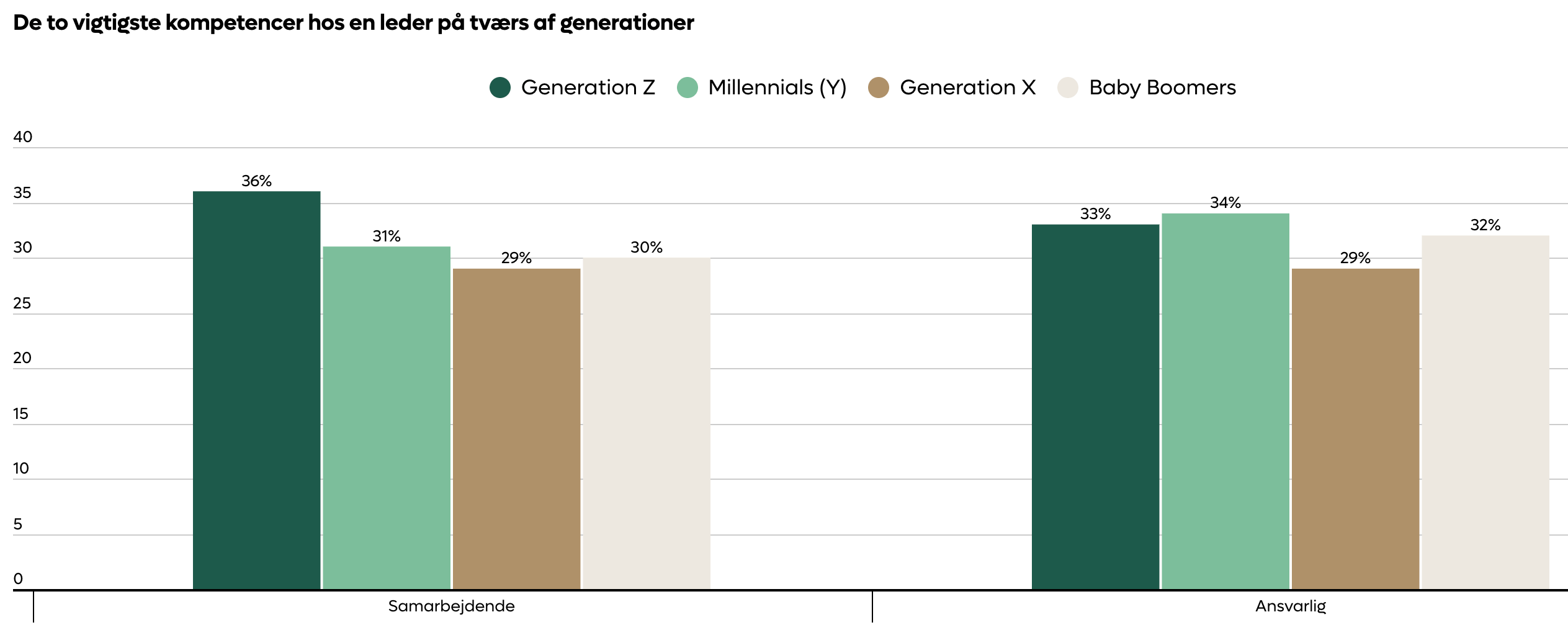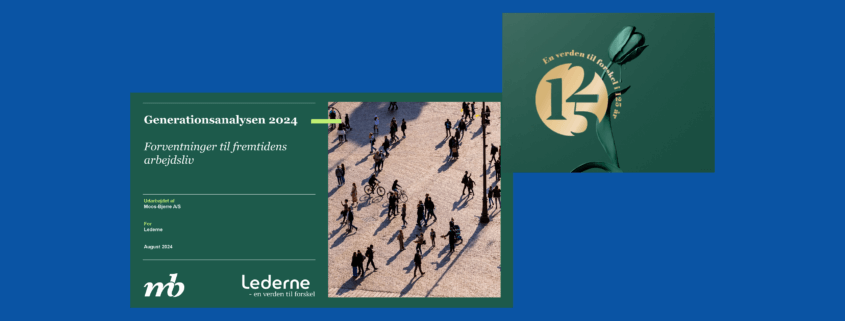Danish generational analysis highlights consensus on good management across ages
Today marks a significant milestone for Lederne, the Danish member organisation of CEC European Managers, as it celebrates its 125th anniversary.
For over a century, Lederne has been at the forefront of leadership development in Denmark, representing and guiding managers through evolving workplace dynamics.
As part of this celebration, Lederne has commissioned a comprehensive generational analysis, conducted by the consulting and analysis agency Moos-Bjerre, to explore the views of different generations on what makes a good leader.
This analysis is the largest ever conducted in Denmark. It surveys approximately 5,000 employees from four distinct generations: Generation Z, Millennials (Generation Y), Generation X, and Baby Boomers.
The findings reveal surprising similarities in expectations for leadership, and the analysis outcomes challenge the narrative that younger and older workers have vastly different demands in the workplace.

A Unified Vision of Leadership
Contrary to popular belief that Generation Z and other younger workers have radically different expectations from their older counterparts, the study shows broad agreement across generations on the qualities that define a good leader.
Employees of all ages highly value attributes such as fairness, responsibility, collaboration, and empathy. Competencies like being active and delegating, while still important, should be more emphasized.

Lederne’s managing director, Bodil Nordestgaard Ismiris, expressed satisfaction with the results, noting that they align with the organization’s values and her own observations.
“A good manager listens to their employees, accommodates and utilizes their diversity, and recognizes their efforts—regardless of which generation they belong to,” she stated.
Ismiris hopes these findings will help dispel some of the myths surrounding generational differences in the workplace.
Dispelling Myths About Generational Gaps
The analysis delves into the idea that focusing too heavily on the differences between generations can exacerbate perceived divides. Ismiris warns that emphasizing these differences can “dig the ditches between generations bigger than they really are,” highlighting the importance of understanding commonalities rather than exaggerating differences.
A good manager listens to their employees, accommodates and utilizes their diversity, and recognizes their efforts
Bodil Nordestgaard Ismiris
Managing Director at Lederne
Mille Urioste, senior consultant at Moos-Bjerre, explains that while there are nuances within each generation, the overarching trends suggest a shared vision of good management.
“Overall, people just want a leader who is a good person,” she notes, underscoring the universal appeal of softer management skills.
Shared Responsibility in the Workplace
One of the more interesting findings of the study is the shared belief across generations that both employees and managers are responsible for ensuring workplace well-being.
Overall, people just want a leader who is a good person
Mille Urioste
Senior consultant at Moos-Bjerre
This challenges the narrative that younger generations, particularly Generation Z, are more demanding and less willing to shoulder responsibility.
In fact, young people in the study expressed a belief in shared responsibility, emphasizing the importance of collaboration in creating a positive work environment.

Different Stages, Different Needs
However, the analysis also highlights differences in the priorities of younger and older workers. Younger employees tend to value social skills and professional sparring opportunities, while older employees prioritize autonomy in task management.
Urioste suggests that these differences are more reflective of life stages rather than generational characteristics, with younger workers naturally seeking more guidance as they build their careers.
Implications for Leadership
Frank Meier, a Ph.D. and Associate Professor in management at CBS, commends the generational analysis for its relevance and depth.
He warns against using the findings to create additional demands on managers, who are already under significant pressure to deliver results while fostering a positive workplace culture.
Meier emphasizes that empathetic and fair leadership is essential for building trust and encouraging innovation.
“The more empathetic, fair, and inclusive you are, the more you get what you want: creative, energetic, and autonomous employees who aren’t afraid to fail,” he asserts.
Young people in the study expressed a belief in shared responsibility, emphasizing the importance of collaboration in creating a positive work environment.
Looking Ahead: The Long Game
As the labor market faces a shortage of young workers in the coming years, Meier advises managers to focus on long-term sustainability rather than short-term results.
By creating workplaces where employees of all ages feel valued and supported, managers can ensure not only the retention of their workforce but also attract new talent.
On this momentous anniversary, Lederne‘s generational analysis serves as a timely reminder that while the workplace continues to evolve, the core values of good leadership remain consistent across generations.
As Lederne celebrates 125 years of guiding Danish leaders, the findings affirm that a commitment to fairness, empathy, and collaboration is as relevant today as it was over a century ago.
Download the complete report here [+]
You can read the full article on Lederne’s website [+]









